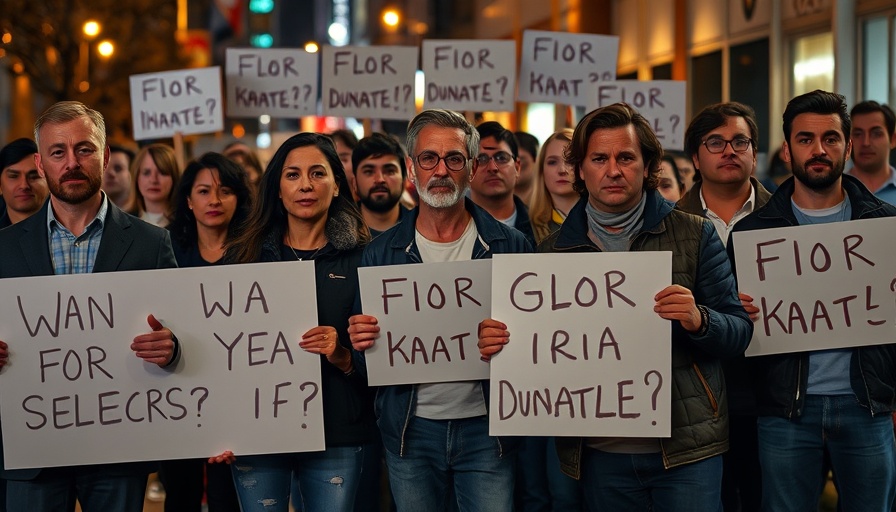
The Crisis of Hostage Situations in Gaza
As tensions escalate in the Gaza Strip, worries abound for the safety of the 59 hostages still held by Hamas. Former captives such as Iair Horn, Alexandre Sasha Troufanov, and Keith Siegel recently gathered in Tel Aviv, drawing attention to the precarious situation. Military actions taken by Israel, including intense airstrikes, have raised alarms amongst families and advocacy groups regarding the safety of these hostages. The conflict is not merely a battle of military might; it is also a matter of human lives caught in the crossfire.
A Fragile Ceasefire
After months of a tense truce, renewed military operations in Gaza from Israel are alarming for those invested in diplomacy. A ceasefire was in place after significant negotiations led to the release of hostages in exchange for Palestinian individuals. These efforts, however, have been stalled, with neither side willing to compromise further, resulting in increased military pressure from Israel after Hamas's refusal to further release captives. This scenario has left hostages in an acutely dangerous position, especially as unresolved tensions may result in retaliation and unpredictable responses from Hamas.
The Human Cost of Conflict
Further complicating the situation, the Israeli airstrikes have already led to significant loss of life, with more than 400 reported casualties. Dr. Michael Milstein from the Dayan Center emphasizes the dilemmas involved: aiming for the dual goals of freeing hostages while dismantling Hamas poses significant challenges. He warns that without choosing one path decisively, the result is prolonged suffering on both sides. The devastation is not merely political; it embodies real human pain and entrapment, echoing the broader narrative of conflict where civilians pay the highest price.
Hostage Families Speak Out
The challenges faced by the hostages and their families highlight the need for urgent humanitarian intervention. Family members, such as Udi Gore, who lost his cousin Tal Haimi, express frustration over perceived governmental inaction. Gore’s story reflects a broader sentiment among hostage families who feel increasingly desperate for solutions. He articulates a poignant call for leaders to prioritize hostage recovery over military action: "Bringing back the hostages must be the top priority of this war. Otherwise, there is absolutely no way to win,” he said.
The Role of Global Diplomacy
The need for international involvement has never been more critical. Mediation efforts from the U.S., Egypt, and Qatar have already been initiated, but with tensions rising, any chance for a peaceful resolution wanes. Active diplomacy could not only help stabilize the region and protect the hostages but also alleviate the immediate humanitarian crisis unfolding in Gaza. A genuine commitment to end the conflict may provide the only viable path toward ensuring the safety of the hostages.
Understanding the Religious and Political Dimensions
For the faith community, this crisis resonates deeply. Many globally aware Christians are called to advocate for justice and humanitarian support aligned with their beliefs. Recognizing the dual narrative of suffering—both among Israelis and Palestinians—highlights the unique challenges in responding to the crisis. Advocacy for peace and safety can arise from this understanding, aiming to forge connections and bring forth actionable changes that reflect the compassion at the core of these faith traditions.
In conclusion, the crisis surrounding hostages held by Hamas is a dire situation that requires attention and immediate action. The anguish of families and deteriorating conditions point towards the necessity of an artistically humanitarian approach to resolving this conflict. As the days unfold, we urge concerned individuals and faith leaders to join efforts advocating for the safe release of hostages and an end to the violence.
 Add Row
Add Row  Add
Add 








Write A Comment